Anxiety is a physical and mental emotion in which you feel nervous, uneasy, uncomfortable or restless. It is a common disorder as everyone might feel anxious sometime in their life when they are surrounded by a couple of problems.
For example, a person might be worry when going to face a problem or going for a new job interview.
Anxiety attack is very common in the United States as 40 million people in the US are being affected by anxiety disorder but it is treatable as several effective treatments are available and can lead to a normal life.
But, some people find it difficult to control their worry and stress that can affect their life.
According to the researchers:
“Occasional anxiety is OK or satisfactory but anxiety order is may vary differently as it can cause mental illness”
There are many types of Anxiety disorders, so let explore them all including generalized anxiety disorder, panic anxiety disorder and so on.
Check: Postpartum Anxiety
What is anxiety disorder?
In some people anxiety occurs occasionally (normal anxiety) due to some reason like starting a new job, taking a test, etc.
The definition of anxiety disorder is apart from the occasional anxiety, some people may have anxiety disorder characterized as a mental illness that can impact life as it is unmanageable and come unexpectedly and may feel some sensation or fear.
What is the difference between normal anxiety and anxiety disorder?
Normal anxiety
- Occurs due to some specific problem or situation
- Normal anxiety condition depends upon the situation or the problem.
- It will last only when the problem will be finished.
Anxiety disorder
- Anxiety disorder occurs unexpectedly (sometimes without any reason)
- It may last longer than the situation
- Anxiety disorder may be unmanageable
- It may occur strongly than the problem.
Also, Check: Strategies To Control Overthinking
5 main types of anxiety disorder
The following are five major types of Anxiety Disorder:
- Generalized Anxiety Disorder
- Obsessive-Compulsive Disorder (OCD)
- Panic Disorder
- Specific Phobia
- Selective Mutism
1. Generalized anxiety disorder
Generalized anxiety disorder (GAD) occurs by excessive worry about many different things. it may be about money, health, work, and many other issues. A person with a generalized anxiety disorder will find it challenging to overcome its worry.
Symptoms of GAD
- Persistent worrying
- Having difficulties in controlling the worries
- Restless feel
- Fear of making “wrong decision or plan”
Cause of GAD
There are few key factors that can cause GAD in a person:
- Biological Factors
- Family History
- Stressful events or occasions
Read: COVID Anxiety Syndrome
2. Obsessive-compulsive disorder (OCD)
Obsessive is a common and long-lasting disorder in which a person can experience many different or recurring thoughts and behavior. The person with OCD may urge to repeat the thing or the act again and again.
Symptoms of OCD
- Fear of contamination
- Recurring or aggressive thoughts
- Repeating act over and over just like hand washing or cleaning
- Having difficulty and mangling thought
Causes of OCD
- Genes
- Environment
- Brain Functioning
Read: Self Phobia
3. Panic disorder
A panic disorder occurs when a person experience panic attacks throughout the body. A panic attack is defined as fear or discomfort it may occur when a person feels sudden fear or terror.
Symptoms of panic disorder
- Sudden breathing difficulties
- Sweating
- Dizziness
- Nausea
- Shaking/trembling
- Fear of die
4. Specific phobia
Specific phobia is irrational fears of some objects or situations that create a pose that looks little real danger and provoke anxiety symptoms in the person just like height or flying and some other objects.
Symptoms of specific phobia
- Irrational fear about some objects or situations
- Panic attack
- Nausea
- Trembling
Cause of specific phobia
The exact cause of the specific phobia is not known, but it may seem like the deep experience of some objects or situations and severe threats may cause a specific phobia.
Read: Stranger Anxiety
5. Selective mutism
Selective mutism is a childhood disorder known as a child’s inability to speak or communicate in social and other areas including the school. The children will speak where they feel comfortable and relaxed.
Symptoms of selective mutism
- Nervous
- Rude
- Shy
- Aggressive
Cause of selective mutism
- Due to low courage, he/she will feel distressed in talking with others
- Having difficulty in processing sensory information

You must know about: Obsession and Compulsion
Symptoms of anxiety
The anxiety attack symptoms vary differently depends upon the personal experience as some people may find difficulty in controlling the feeling and thoughts. Main anxiety disorder symptoms are:
Physical anxiety symptoms
- Sweaty
- Nausea
- Shortness of breath
Mental symptoms
- Feeling fear
- Repeated thoughts or acts
- Uncomfortable and aggressive thoughts
Behavior aymptoms
- Having difficulties in sleeping
- Washing hands repeatedly
- Lack of calmness
These anxiety symptoms might be normal or can be severe depending upon the situation or problem mean how big is the problem.
Your symptoms will be different from others, so it is important to understand anxiety and the way how it appears?
Related: Separation Anxiety Disorder
Causes of anxiety
The cause of anxiety is not found currently but the combination of the environment, genetic as well as psychological problems or situation may be a cause of the anxiety.
Anxiety also runs in families due to the combination of genes and other personal stress may be a cause. Some of the common causes are:
Environmental stress
Mean facing difficulties in personal relationships and family or financial pressure to look after a family.
Genetics
Family members having anxiety in their genes which can be a cause of anxiety disorder in their children as well in their family.
Medical factors
Worrying about your family or your children’s health problems can cause stress and anxiety. Just like parents.
Read: Postnatal Anxiety
Anxiety treatment
The treatment of anxiety varies differently depending upon the type. According to researchers and doctors:
“Treating a person with anxiety depends on the anxiety disorder mean a person with depression and other situations have a strong link to anxiety”
In some cases, the anxiety symptom does not reduce, in such cases consult your doctor and go for other anxiety treatments.
Medications
Many types of medications can help to recover from this disorder as they will help to control some of your symptoms including both mental and physical symptoms.
Tricyclic
Tricyclic is an antidepressant medication also considered helpful as recovery from depression and also approved by the Food and Drug Administration (FDA) for treating many types of depression. Panic disorder and other types of mental disorders.
It also has side effects including Weight gain, dizziness, and an increase in heart rate.
Related: How to Stop Worrying
Benzodiazepines
In some circumstances, benzodiazepine is considered a first-line medication and is highly addictive. The benefits and risks of benzodiazepines should be carefully taken into consideration before going to take them.
“In the United States, 55% to almost 80% patients with anxiety are being treated by benzodiazepines”
Anti-depressant
Anti-Anxiety meds help to give relief from anxiety and depression disorder that reduces the symptoms.
Self or natural treatment
A person can also control this from home without any medicine and supervision of the doctor. It cannot be a cure for a severe situation or for another type of long-term disorder.
The main anxiety relief techniques that act as helpful are:
Stress control
Learn how to manage stress effectively, as it can play a vital role and act as a potential in reliving or controlling your emotions.
Stay relaxed
Relaxation is one of the other key factors which can help to control emotions, as simple activities can reduce mental and physical symptoms.
Remove negative thoughts
Make a checklist of the things of your negative thoughts and change yourself, become a positive person to conquer your stress and thoughts.
Exercise
According to Doctors: Exercise is the key factor that can help to relieve stress from your brain and also release some of the chemicals which can trigger yourself positive thinking.
Therapy or counseling
In the therapy, you have to consult the psychological therapist which will ask a few questions to understand your type of disorder and will give you some advice that will help you to get relief from this disorder.
Read: How to Stop a Panic Attack
Preventions
The research shows that it is difficult to prevent. There are some anxiety reduction techniques that can act as helpful in reducing or controlling symptoms.
Stay healthy
Regular exercise and eat a very well-balanced diet which will help to improve your brain structure and function.
Sleep
Having complete sleep can also play a vital role in preventing this illness. As lack of sleep can cause the rise of many diseases. The average sleep time is about 6-7 hours.
Must read: Anxiety Breathing Exercise
Stop or limit alcohol consumption
Firstly try to stop the alcohol consumption but in some cases, you find it difficult to stop it, then take as minimum as possible because it will activate other diseases.
Read: Alcohol Use Disorder
Is it anxiety or depression?
You may find that you feel anxious and depressed for no clear reason, it may be that you have an anxiety disorder, depression disorder, or both anxiety and depression. A person can experience both conditions simultaneously.
More than half of those suffering from depression also suffer from an anxiety disorder.
Anxiety and depression are serious illnesses, which can be managed. Similar medications may be used for both conditions. There are also similarities among the two symptoms, like irritability, nervousness, insomnia and difficulty concentrating, however, their causes differ widely.
An anxiety disorder may cause you to experience:
- Panic, fear and anxiety in consequence when most people would not feel threatened or anxious
- The feeling of constant anxiety or worry
- Anxiety attacks happening suddenly for no clear reason
When not treated, these mental disorders may prevent you from working, maintaining relationships, or even leaving the house.
Depression: Depressed people suffer a variety of effects on their lives like the way in which they behave, how they feel, and how they think. The following symptoms may occur if you are suffering from this condition:
- Discouragement
- Sadness
- Hopelessness
- Anger
- Lack of interest or motivation in life
- Low energy level
- Insomnia
- Overwhelmed by personal interactions and daily tasks
If the above feelings persist for more than two weeks and interfere with your daily routines like spending time with family and friends, or facing difficulties at work, likely you’re going through a major depressive episode.
Related: How to Get Out of a Depressive Episode
Our verdict
Anxiety Disorder is common and almost every person experiences it in their lifetime. In the United States, every third person experiences this disorder.
Yes, this is treatable in several ways as many effective treatments are being developed.
If a person suffering from anxiety should take a rest and learn how to control their fear and stress as it is the two major factors that play a vital role in the adaption of mental illness in a person. After that consult the psychologist and take advice and take the medication regularly that control this illness.
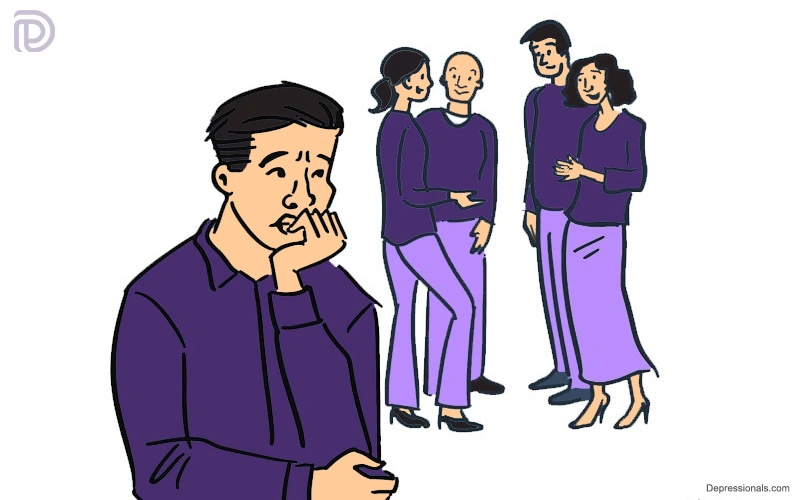
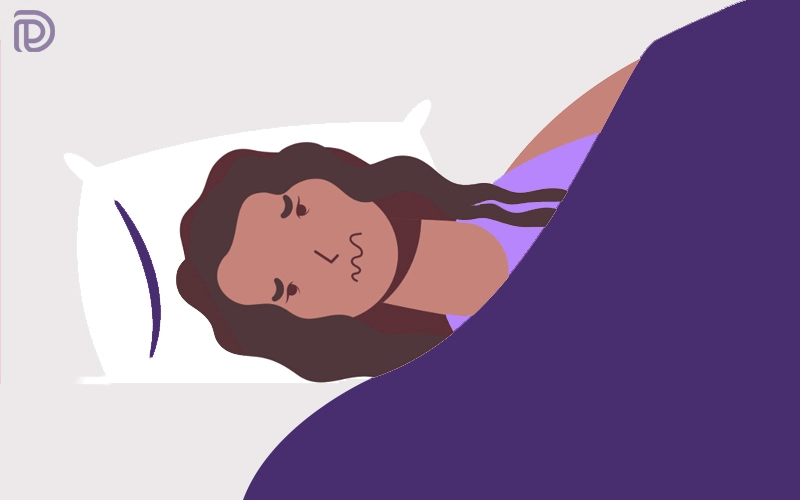
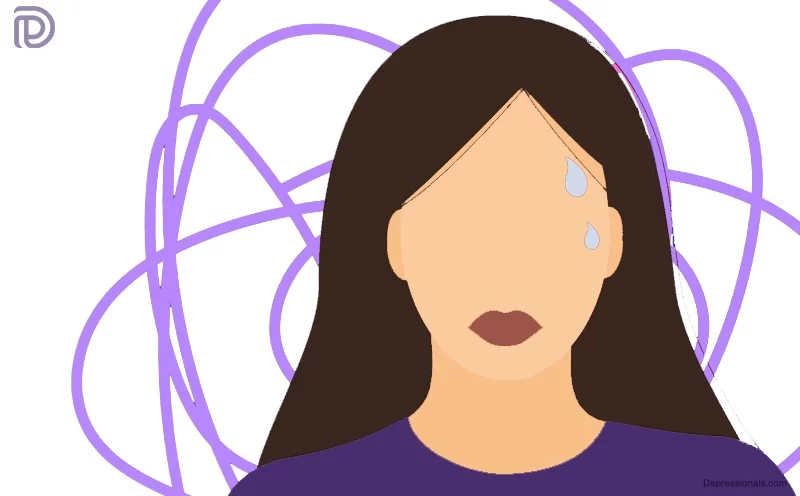
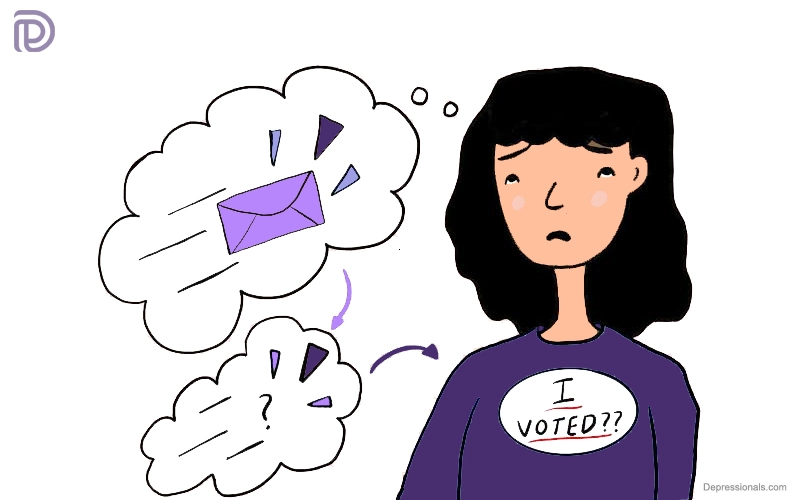
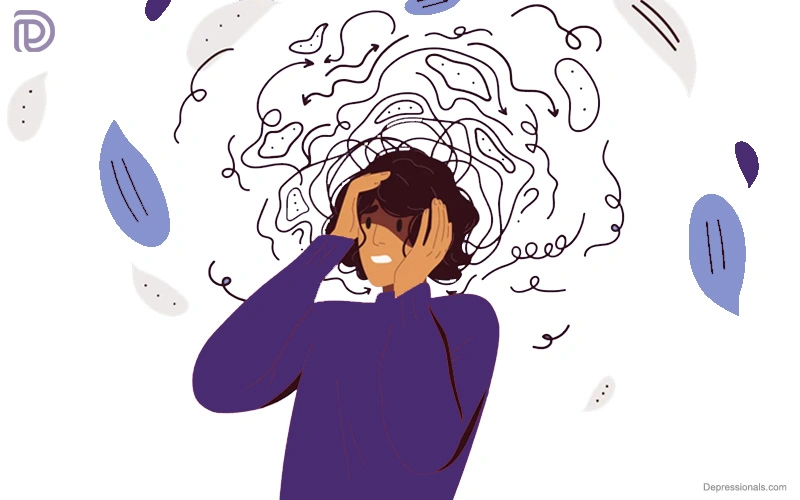

Good – I should definitely pronounce, impressed with your web site. I had no trouble navigating through all tabs and related information ended up being truly easy to do to access. I recently found what I hoped for before you know it at all. Quite unusual. Is likely to appreciate it for those who add forums or anything, site theme . a tones way for your customer to communicate. Nice task..
Great post. I am facing a couple of these problems.